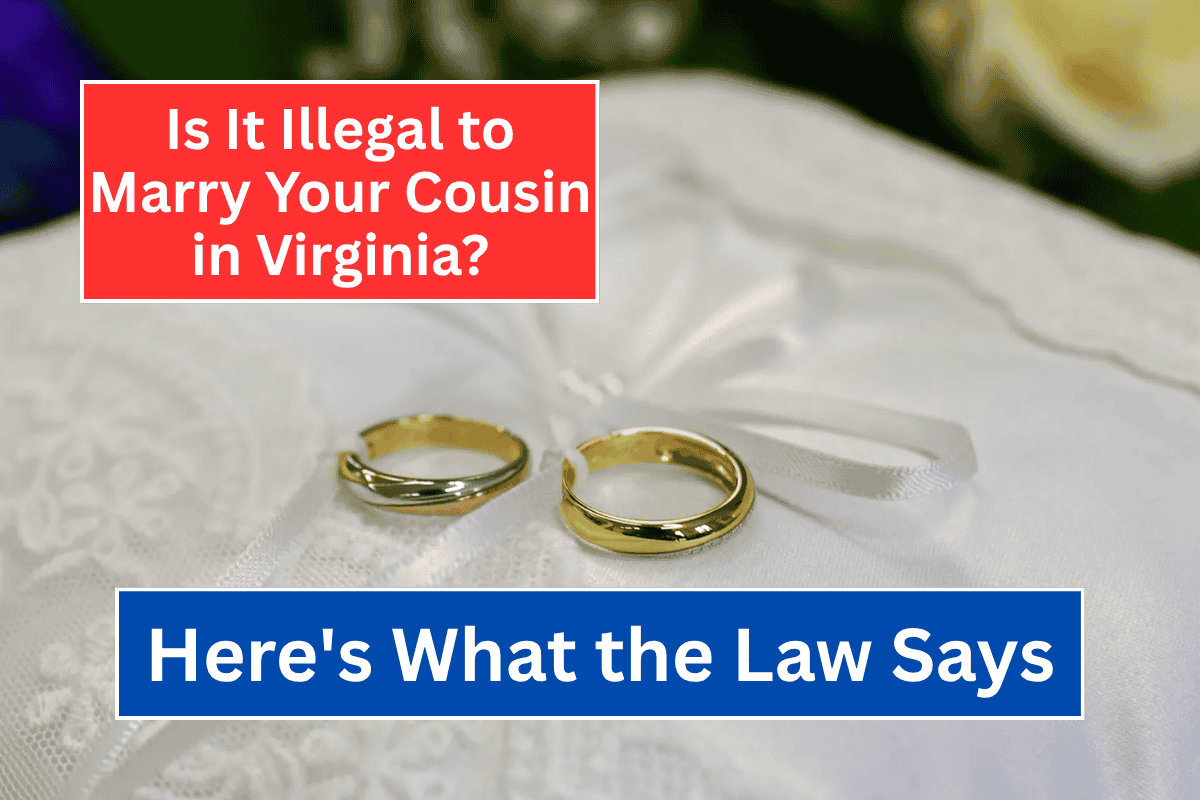If you’re wondering whether it’s legal to marry your cousin in Virginia, the answer is yes — first cousins and all other types of cousins can legally marry in the Commonwealth. While some U.S. states ban cousin marriages, Virginia has no such restriction in its current laws.
Here’s what you need to know if you’re considering marrying your cousin in Virginia — whether you’re a resident or planning to travel there for the ceremony.
Is Cousin Marriage Legal in Virginia?
Yes, cousin marriage is legal in Virginia.
The law does not prohibit marriage between first cousins, half first cousins, or more distant relatives. Virginia’s marriage laws clearly list the family relationships that are not allowed, and cousins are not included in that list.
Here’s who can’t marry in Virginia
Parent and child (including adopted)
Siblings (including half-siblings and adopted siblings)
Uncle or aunt with niece or nephew (whole or half-blood)
Since cousins are not listed, this means first cousins, second cousins, and beyond can marry freely.
Types of Cousins Who Can Legally Marry in Virginia
| Type of Cousin | Legal in Virginia? | Notes |
|---|---|---|
| First cousin | Yes | Fully legal, no special restrictions |
| Half first cousin | Yes | Also allowed |
| First cousin once removed | Yes | Legal without conditions |
| Second, third cousins & beyond | Yes | No issues under state law |
Important: Make sure your partner is actually your cousin — and not your half-sibling, as half-sibling marriages are explicitly banned.
How to Get Married as Cousins in Virginia
Step 1: Apply for a Marriage License
You must apply for a marriage license at a Virginia circuit court clerk’s office. This can be done in any county in the state, and:
You do not need to be a Virginia resident.
The marriage license is valid statewide, not just in the issuing county.
Step 2: Be Prepared for Questions
Virginia marriage forms typically do not ask if the couple is related, but a court clerk may ask during the application process. If asked, simply explain the nature of your relationship — for example, “we’re first cousins.”
Step 3: Plan Your Ceremony
You can marry in a civil or religious ceremony. If you’re Catholic and plan to marry in a church, first cousin marriages require special permission (dispensation) from the Church. However, second cousins and beyond typically do not need any special approval.
Will Other States Recognize Your Cousin Marriage?
Yes — in most cases. But be cautious:
Some states (like Kentucky and West Virginia) do not allow cousin marriages and may not recognize such marriages even if they were legally performed elsewhere, including in Virginia.
If you live in a state that prohibits cousin marriage, it’s best to consult with a family lawyer to understand how your home state will treat a marriage performed in Virginia.
Catholic Church & Cousin Marriage
In the Roman Catholic Church, first cousin marriages are considered consanguineous and typically require a dispensation (formal permission from a bishop). If approved, the marriage can proceed in the church.
Second cousins and beyond do not need permission, but it’s a good idea to inform your priest in advance.
Virginia law allows cousin marriage, including first cousins. If you’re considering marrying your cousin — whether you live in Virginia or are traveling from a nearby state — you can legally obtain a marriage license and wed without any special barriers under state law. Just be mindful of possible legal or social concerns in other states, especially if you plan to move.












